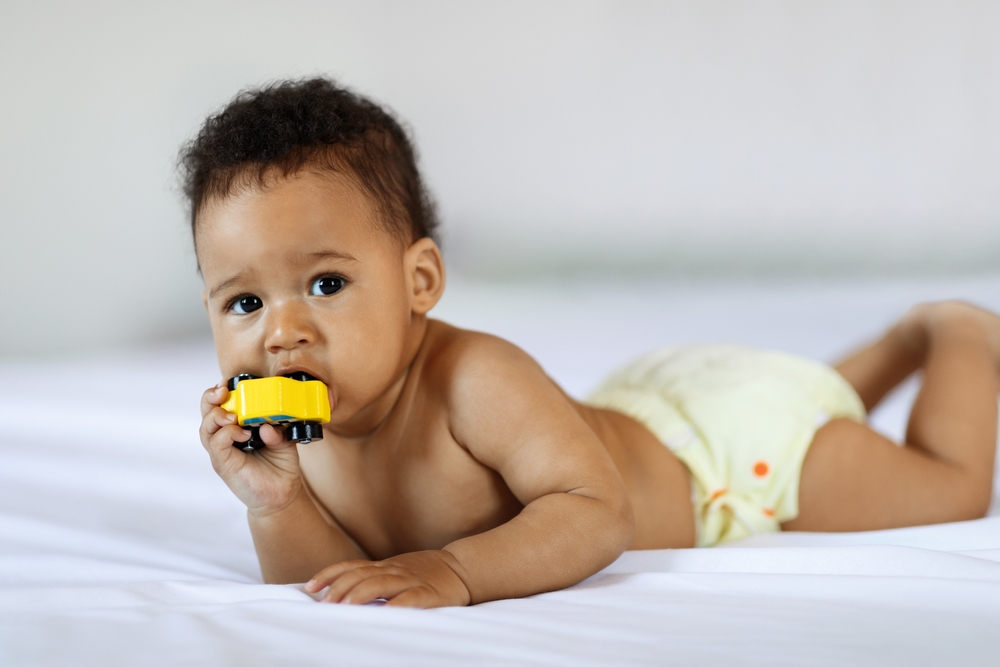
4 Signs of Teething in Newborns
As parents, we strive to provide the best care for our little ones, ensuring their health and well-being every step of the way. One essential aspect of early childhood development is dental care, and that includes recognizing the signs of teething in newborns.
Teething is a natural process that marks the eruption of your baby’s first set of teeth, and being aware of the signs can help you provide the necessary comfort and support during this phase.
In this article, we’ll explore the four common signs of teething in newborns, equipping you with the knowledge and tools to navigate this phase with confidence.
Common Signs of Teething
Teething is a natural process that every child goes through, but it can be challenging for both infants and parents. By recognizing the signs of teething, you can provide the necessary support and relief for your little one.
Let’s explore the four common signs of teething in newborns:
Sign 1: Increased Irritability and Fussiness
Teething can cause discomfort and soreness in your baby’s gums, leading to increased irritability and fussiness. You may notice that your little one becomes more irritable than usual, experiencing difficulty in calming down or being easily agitated. They may also have trouble sleeping, causing disruptions in their usual sleep patterns.
To help soothe your baby’s teething pain, try gently massaging their gums with a clean finger or a cool, damp cloth. You can also offer them a teething ring or a chilled, but not frozen, teething toy to chew on. The pressure helps alleviate the discomfort and provides some relief.
Sign 2: Excessive Drooling
Excessive drooling is another telltale sign of teething. Your baby’s mouth produces more saliva during this period, leading to drooling that may soak their clothes or create a constant stream of drool. Excessive moisture around the mouth can sometimes cause irritation, so it’s important to keep their skin dry to prevent any rashes or chafing.
To manage excessive drooling, gently wipe your baby’s chin and mouth with a soft cloth throughout the day. You can also use a drool bib to keep their clothes dry and comfortable. Remember to avoid using plastic bibs as they can trap moisture and potentially cause skin irritation.
Sign 3: Swollen or Sensitive Gums
Teething can cause inflammation and sensitivity in your baby’s gums. You may notice that their gums appear red, swollen, and even slightly bruised in some cases. Your baby may express discomfort when you touch or apply pressure to their gums. To ease gum discomfort, provide gentle relief by using a clean finger to apply light pressure on their gums. You can also try giving them a cold teething ring or a teething toy that has been refrigerated (not frozen) to help reduce inflammation. Avoid using teething gels or medications without consulting your pediatric dentist or healthcare provider.
Sign 4: Increased Biting and Chewing
When babies are teething, they often find relief by biting and chewing on objects. They may gnaw on their fingers, toys, or even household items. This behaviour is their way of soothing their sore gums and counteracting the pressure caused by the erupting teeth.
To fulfil their natural urge to bite, offer safe teething toys specifically designed for this purpose. Look for toys made of non-toxic, BPA-free materials that are easy for your baby to hold and chew on. Avoid items that are small enough to pose a choking hazard or have sharp edges.
By being attentive to these four signs of teething, you can provide the necessary care and comfort to your teething baby. Remember, every child is unique, and their teething experience may vary. Patience, understanding, and a well-prepared toolkit of teething remedies will go a long way in helping your little one through this phase.
In the next section, we will discuss the importance of maintaining oral hygiene during teething and the significance of regular dental check-ups for your child’s dental health.
Caring for a Teething Infant
During the teething phase, it’s crucial to maintain good oral hygiene to ensure your baby’s dental health remains optimal. Here are some essential tips to help you care for your teething infant:
Oral Hygiene Practices:
- Start cleaning your baby’s gums even before the first tooth appears. Use a soft, damp cloth or a silicone finger brush to gently wipe their gums after feedings.
- Once the first tooth erupts, begin brushing it with an infant-sized toothbrush and a smear of toothpaste. Use gentle, circular motions to clean all tooth surfaces.
- As more teeth emerge, gradually increase the amount of toothpaste to a pea-sized portion. Ensure you use fluoride toothpaste appropriate for your child’s age.
- Brush your baby’s teeth twice a day, in the morning and before bedtime, to establish a healthy oral hygiene routine from an early age.
Proper Diet:
- Avoid sugary foods and beverages, as they can contribute to tooth decay. Opt for nutritious, balanced meals and snacks that support your baby’s overall health.
- Limit or avoid giving your baby sugary drinks such as juice or soda. Instead, encourage them to drink water, which is essential for hydration and oral health.
- If you choose to give your baby a pacifier, select one that is orthodontically designed and does not contain added sugars or sweeteners.
Regular Dental Check-ups:
- Schedule your baby’s first dental visit within six months of their first tooth erupting or by their first birthday, whichever comes first.
- Regular dental check-ups allow the pediatric dentist to monitor your child’s oral health, provide preventive care, and address any concerns or issues promptly.
- Your pediatric dentist can offer guidance on proper oral care techniques, recommend fluoride treatments if necessary, and assess the need for dental sealants to protect your child’s teeth from decay.
If you liked this blog, check out this one on, “When to Start Brushing Your Baby’s Teeth: A Guide for Parents.”
